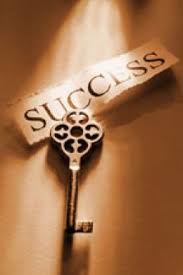
A while ago, I wrote some posts about studying. I mentioned how important it is in chess to have goals, and I briefly explained how to set the goals.
Today, I want to talk more about that subject.
What is a Goal?
Most people set rating goals. However, I think that is a very bad idea.
The first reason is that it is simply impossible to calculate what will happen with who you’re playing and good luck trying to figure out the USCF algorithm. Some people do have an idea, yes, but an idea isn’t good enough; the only ones who really know work for USCF, and they aren’t talking.
You also have to remember that your rating isn’t really a good indicator of your strength. It’s a rough estimate, and when I saw rough, I mean very rough. I’ve been out here playing for over five years now, and my rating still isn’t even close to being where it should be. If your rating is pretty reflective of your actual skill, it means one of two things: 1. Your rating is over 2300 (the points become much harder after that) or 2. You’ve hit a plateau. I think it’s safe to say that most of you are below 2300, and hitting a plateau is obviously something that nobody (aside from the World Champion) would be happy about.
When you give yourself a rating estimate, it also puts a lot of pressure on you to win games. Most people will fold under the pressure, and chances are good that they won’t meet the goal. Then they start doubting themselves.
Just because your rating isn’t going up doesn’t mean that you aren’t getting better. I’m about 100 points below where I was a month ago, but I’m much stronger. Learning about the opening is great, but just getting a good position out of the opening doesn’t guarantee you victory. If your opponent previously had a skill rating of 1500 and you had one of 1200, then even if you get to 1350, you’ll still lose most of the time, but the games will be closer.
Finally, a rating goal is just too general. Saying that you want to get to, say, 1600 in sixth months doesn’t really mean anything if you don’t take the steps to actually do it. Instead, you need to set goals of what you’re going to do to actually get there.
Setting a Study Goal
I recommend setting a study goal. Studying is a great way to get better, so the more you study the better you get.
I will warn you that if you study for a while out of the blue, your rating will suffer and you’ll get worse at the beginning. However, after that, it will take an enormous jump, and you’ll be a much stronger player.
How to Set the Goal
So how do you decide what your goal will be and how to set it? Well, here’s what you do:
First, you look over your past ten or fifteen or so games and see what has been going on. Then, rate yourself based on opening, tactics, strategy, positional, calculation, and endgame. You should study all aspects, but the ones which you rate yourself lower in, of course, you should study more.
Next, take a look at your schedule and how much time you have for chess. If you don’t have much time, ask yourself if there’s anything you’re willing to drop in order to play better chess? If you just can’t find time, then be aware that you will probably never progress much in chess.
You have to choose what cycle you’re going to use. I use a weekly cycle, because I have the time each week to get to all of those aspects of the game. However, for many of you, that will be impossible. I would recommend that there should be around ten hours in each cycle, and then you split that up accordingly to your schedule.
You can study in small periods of time gradually to get up to those ten hours, but if it’s possible to study for longer periods, that would be much better, as I think it takes people a while to get into the groove.
So a three week cycle might look like this:
Monday: 20 minutes: Openings
Tuesday: 30 minutes: Strategy
Wednesday: 45 minutes: Tactics
Thursday: 35 minutes: Positional
Friday: 25 minutes: Calculation
Saturday: 25 minutes: Endgame
Sunday: 20 minutes: Free (on Sunday, I always like to either study whatever or just spend that time doing something else. A different day for you might be appropriate.
So you could just repeat that three weeks, and you’ve reached ten hours. Remember that the more you study, the better you get.
Note: Here is my current personal study schedule.
Changing Your Study Schedule
After every fifteen games, I recommend to reevaluate your skills (something I’ll talk more about at a later date) and change your study schedule in accordance to your new skills in certain areas.
How to Find Study Material
A great study plan is great, but it won’t do any good if you don’t have anything to study. If you can’t afford study books or DVDs, then you shouldn’t be playing chess; it’s a pretty expensive game.
I know how tough times are; I don’t want you to waste your money, and I want you to get better at chess. So I’ll be reviewing the books and DVDs (good and bad) that I read/watch and telling you if they’re worth it or not. Every other month, I’ll publish a list of the top ten books and DVDs to buy, so you really are getting the very best for your money. So get studying!

[…] I’ve told you why you should study, how I study, how to set your study goals, and now I’ve told you how to study. Not only that, but I’ve given you some book reviews of […]